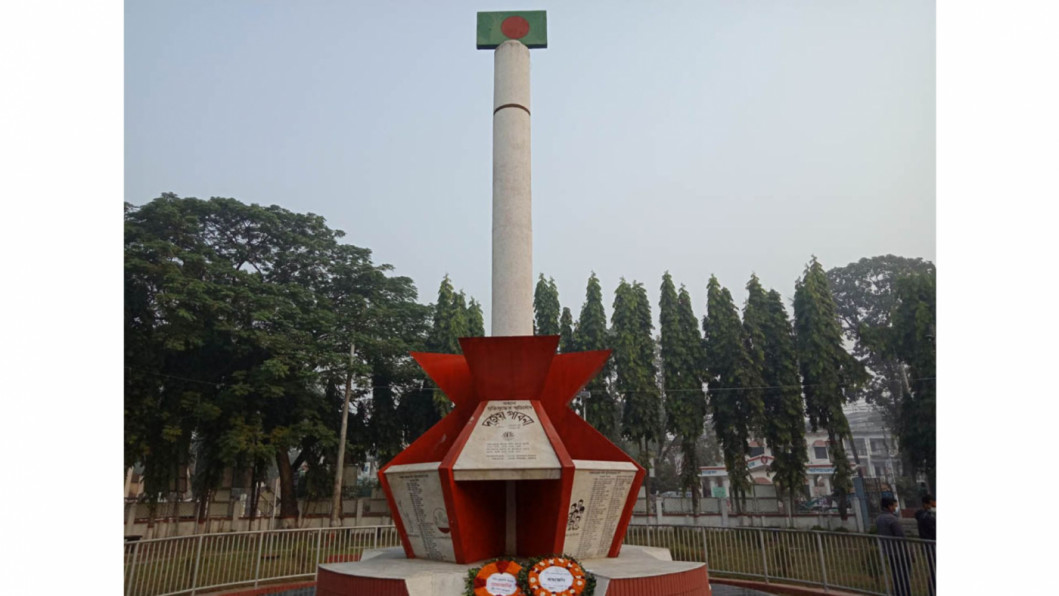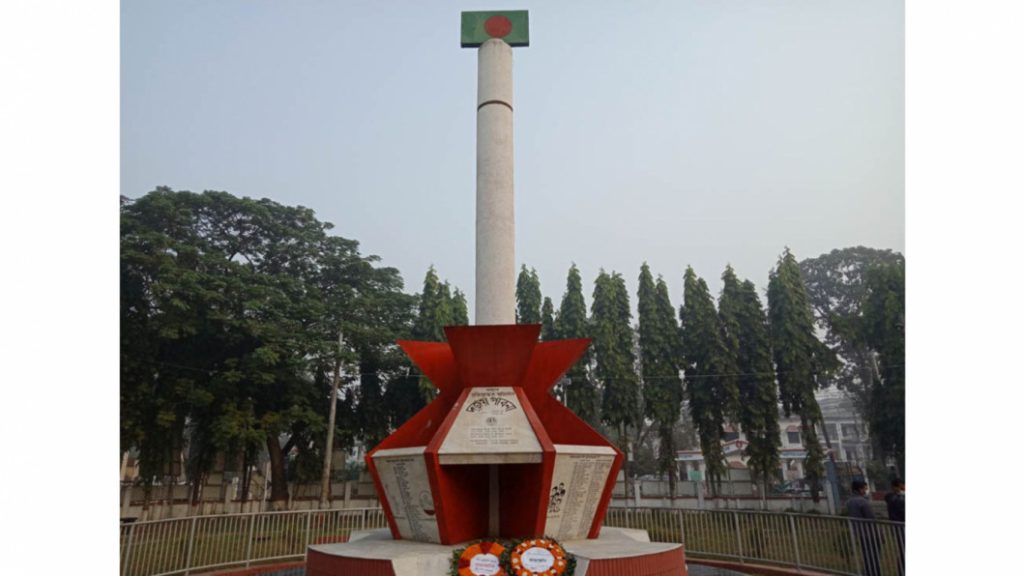Overview:
Pabna, Bangladesh, was freed from Pakistani occupation on December 18, 1971, two days after Pakistan’s surrender. The liberation was the result of fierce resistance from the people of Pabna, who fought valiantly against the Pakistani military.
Early Resistance and Struggle
After the historic announcement by Bangabandhu Sheikh Mujibur Rahman on March 7, 1971, the residents of Pabna began preparing to fight the Pakistani forces. Students were trained at local schools and colleges, while the general population organized and became vigilant. When the Pakistani occupation troops entered the district headquarters on March 26, people united to resist them.
The local leadership, including the then Deputy Commissioner, Nurul Kader Khan, supported the resistance by providing access to weapons from the Pabna Police Line. However, the number of weapons was insufficient for the large number of people willing to fight. Even women took to the streets armed with household items like machetes and knives. The EPR (East Pakistan Rifles) also joined the resistance.
The Battle of Pabna
On March 27, a significant battle broke out in front of the Pabna Telephone Exchange Camp, which lasted until March 28. The two-day conflict resulted in the deaths of 28 to 30 Pakistani soldiers. In retaliation, the Pakistani forces launched an airstrike on March 29, killing approximately five to six people. However, the local resistance continued undeterred.
The Pakistani troops attempted to retreat using the Pabna-Ishwardi road after the airstrike. But, in a dramatic turn of events, they were ambushed by local freedom fighters in Dashuria and Gopalpur, in Ishwardi Upazila. A bloody battle ensued, lasting until midnight, with no prisoners taken. Although Pabna was temporarily freed, the battle had claimed many lives, and the fighting was far from over.
The Role of Local Leaders and Heroes
The people of Pabna, including leaders and freedom fighters, played a crucial role in organizing and leading the resistance against the Pakistani forces. Some notable figures who contributed significantly to the liberation of Pabna include:
- Amjad Hossain MNA
- Abdur Rob Baga Mia
- Advocate Amin Uddin
- Advocate Amjad Hossain
- Waz Uddin Khan
- Advocate Golam Ali Kaderi
- Nabab Ali Mollah
- Student leader Rafiqul Islam Bakul (Head of the Pabna Freedom Fighters)
- Iqbal Hossain
- Abdus Chattar Lalu
- Sohrab Uddin Soba
- Riddick Ali
- Baby Islam
The Pabna police force, led by Rafiqul Islam Bakul, fought bravely against the Pakistani army during the Battle of Pabna Police Line on March 28, 1971. After repelling the attack, the Pakistani forces retreated to the telephone exchange, but they were met with another attack from the local fighters. The battle resulted in the deaths of many Pakistani soldiers, and some of their forces fled the city.
Other key resistance points in Pabna included Moylagari, Circuit House, and the Pabna Police Line. The courageous local population fought against overwhelming odds at 17 different locations across the district.
The Final Push for Liberation
Although the initial victory was short-lived, and the Pakistani military returned in greater numbers, the people of Pabna remained steadfast. The resistance continued throughout the months, and on July 14, 1971, the situation in Pabna began to change. Additional freedom fighters from surrounding areas joined the local resistance.
Ultimately, the liberation of Pabna was achieved on December 18, 1971, two days after Pakistan’s official surrender in the war. The brave people of Pabna had endured immense sacrifices and hardship, but they triumphed in their fight for independence.
Conclusion
The liberation of Pabna was a significant chapter in Bangladesh’s struggle for freedom. The people of Pabna, led by local heroes, fought relentlessly against the Pakistani occupation forces. Despite suffering heavy losses and enduring years of hardship, they stood strong and ultimately contributed to the birth of the independent nation of Bangladesh.


